Poolside: “My philosophy on this record was to seek unique sounds and textures and write without any real aims”
Poolside producer and multi-instrumentalist Jeffrey Paradise talks creativity and drawing on past processes to paint the sonic colours of ‘Blame it All On Love’.
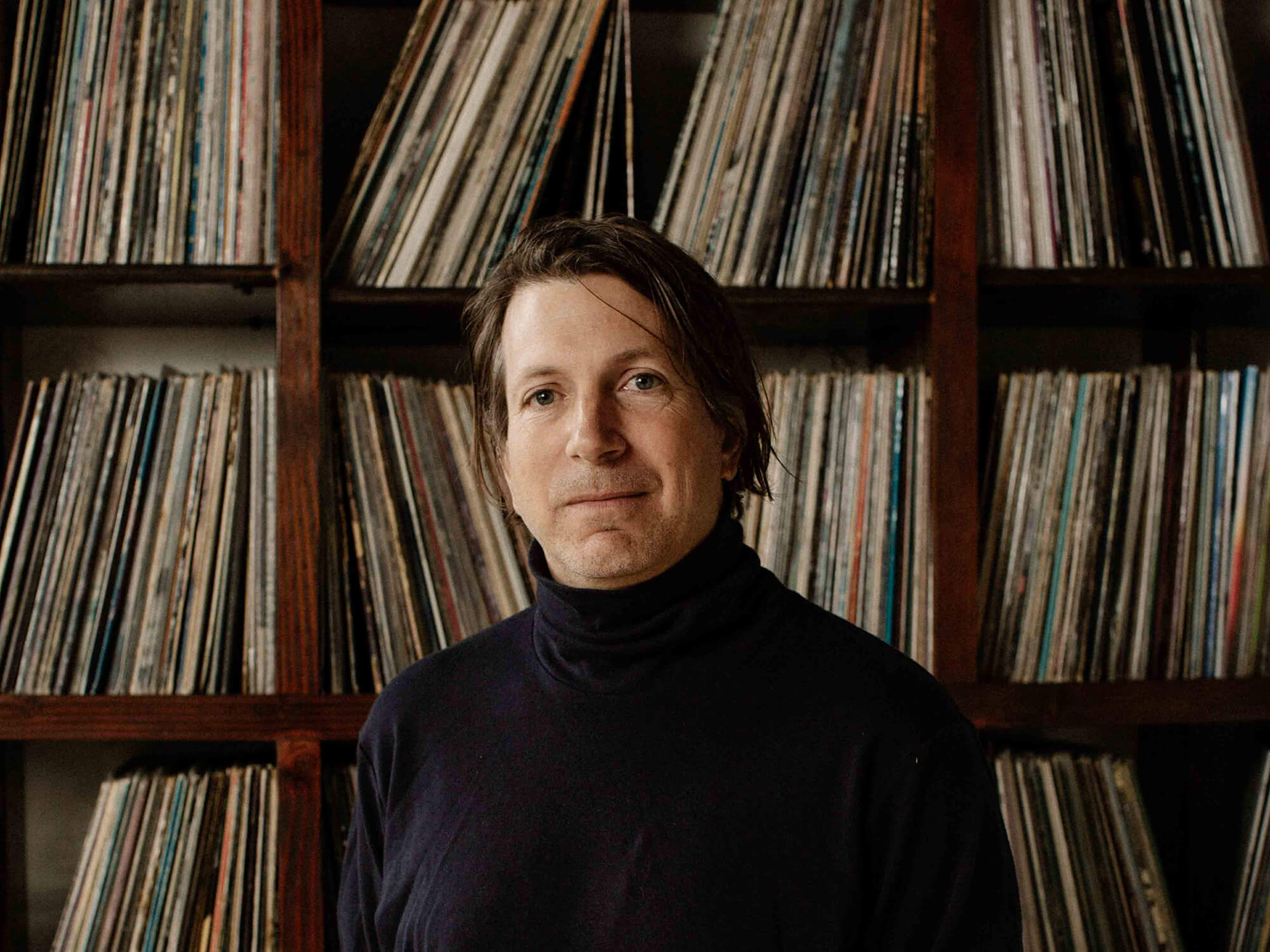
Jeffrey Paradise of Poolside
Jeffrey Paradise’s Poolside project is beloved for its lush sound and the laconic bpms of the ‘daytime disco’ genre it dived into over a decade ago. His latest record, Blame It All On Love, is all about side-stepping the balmy style he’s become known for – and adding a little more frisson.
“I wanted to tease your ear on every track with this record,” Jeffrey says from his sun-kissed Californian studio. “I’m not an audiologist but I believe that if you hear a loop that just sounds the same on each pass, then the ear tunes out. I wanted some variety in there for people to get hooked.”
Since the 2012 debut album, Pacific Standard Time, Poolside has become synonymous with a musical smoothness and a similar bliss lit up by peers including Washed Out and Toro Y Moi. With Blame It All On Love, Jeffrey let himself lean into making music just for fun.
“My philosophy on this record was to look for unique sounds and textures and write without any real aims,” he says. “This led me to dive into some cheap, somewhat “bad” sounding gear that hasn’t been fetishized and hasn’t been re-created virtually – and this makes it feel special.”
Diving in
Jeffrey’s initial musical movements were in California’s punk scene, then working in a record store before falling under the spell of dance music through a set from DJ David Harness. Harness is a hero of Bay Area club culture, and it was the first time Jeffrey realised the dancefloor’s power.
“It began a love affair with electronic music,” he recalls. “I was in San Francisco when DJs started mixing indie records with Chicago house, and suddenly saw all these connections and the relationship between this and the punk rock I was raised on.”
“I was in San Francisco when DJs started mixing indie records with Chicago house, and suddenly I saw all these connections and the relationship between this and the punk rock I was raised on.”
In the mid-2000s, Jeffrey started recording as Paradise Boys and working with producer Jonah Sharpe, also known as Spacetime Continuum. This collaboration was another lightbulb moment on his journey of electronic music discovery.
“It opened up this whole new world,” he states. “Jonah’s garage was full of old synths and weird gears in this little studio. I suddenly realised that you didn’t have to have as much gear as Butch Vig to produce a record.”
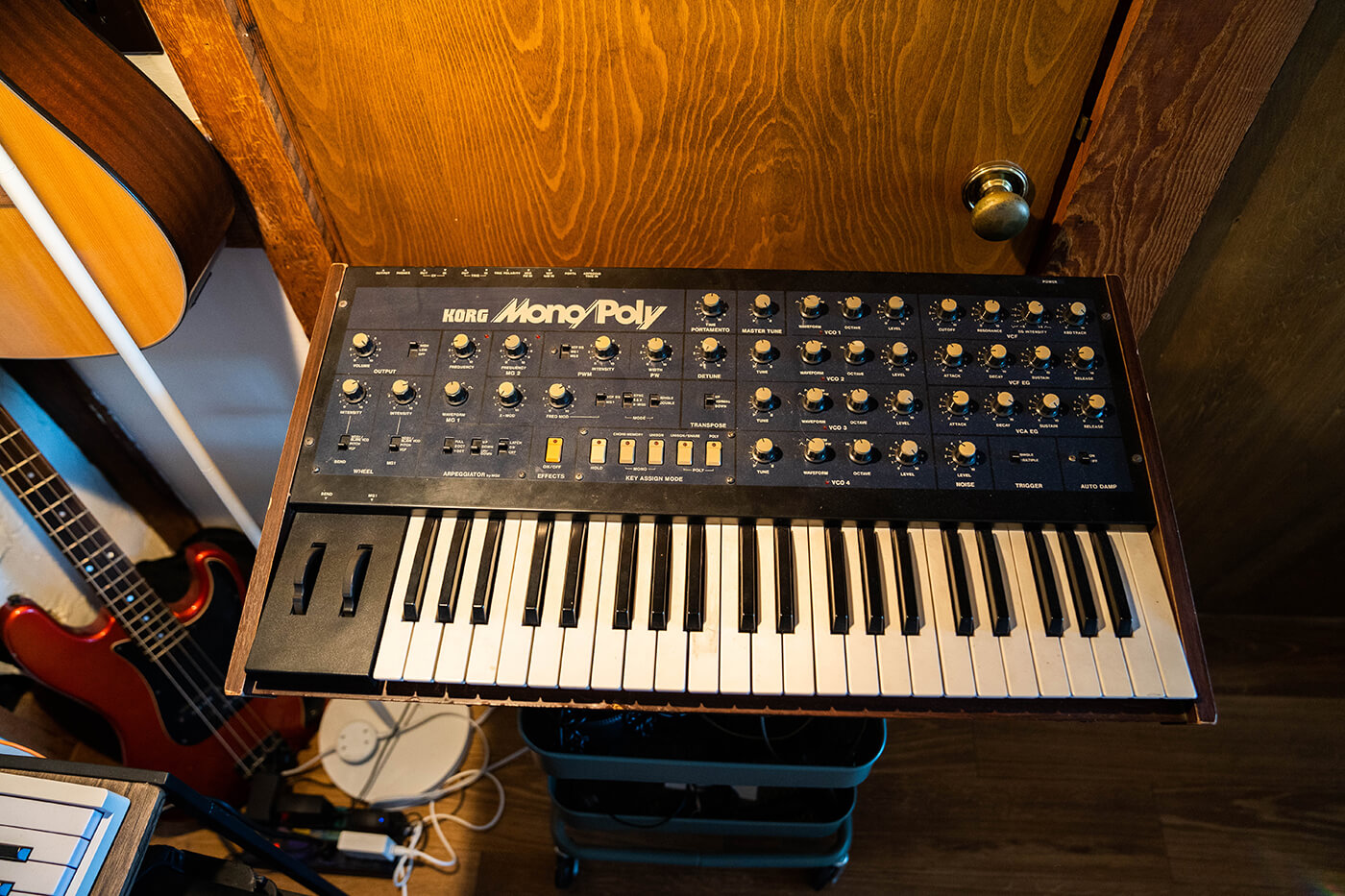
Dubstep reaction
In the mid-2000s, you would have found Jeffrey sourcing old synths and drum machines at garage sales – a Korg Mono/Poly, a Roland Juno 60 – before grappling with DAWs such as Reason and Ableton.
“I would beg friends for help at the start as I struggled to get my head round these platforms until I found Ableton,” he says. “It suddenly started to make sense with this interface and I began making mixtapes and edits.”
Towards the end of the decade, Jeffrey started piecing together original compositions, inspired by his love of dance music as much as a reaction to the crunching dubstep that was the prevalent sound of the time.
“I was over-exposed to big room EDM and dubstep bangers,” he says. “I was more after working out what I wanted to hear when I was hanging out in people’s backyards in LA. So my music was definitely a reaction. What started as a weekend project, maybe getting a few gigs a year, just spiralled.”
Fame explosion
Within six months, Poolside featuring Jeffrey and then musical partner, Filip Nikolic, was a festival act. The retro-pop-acid of debut single ‘Do you Believe’ had just been released via Future Classic and they found themselves about to play a small DJ tent alongside DFA artists.
“We thought it was going to suck as no one was there,” says Jeffrey. “Then we got up to play, looked up the hill and suddenly all these people came running down it – the whole place filled. We DJed, kept it at 100 bpm and the crowd stayed with us. It was a really crazy moment.”
“Ultimately, I like to do all of these subtle things that you’re not supposed to do to capture a vibe that is fresh and has unique moments and character.”
With their debut album, Pacific Standard Time complete, there was some time to wait until the record was released and a burgeoning fanbase wanted more. To maintain momentum, Poolside opted to record a version of Neil Young’s ‘Harvest Moon’.
‘The cover was put together in a couple of hours and our manager thought it didn’t sound finished,” say Jeffrey. “We put it on SoundCloud anyway, and the next day it went crazy with listens. We had to stop pressing the record, then add it to the album. It was just something to tide our fans over but James Murphy and Harvey started DJing it and it became the biggest thing ever.”
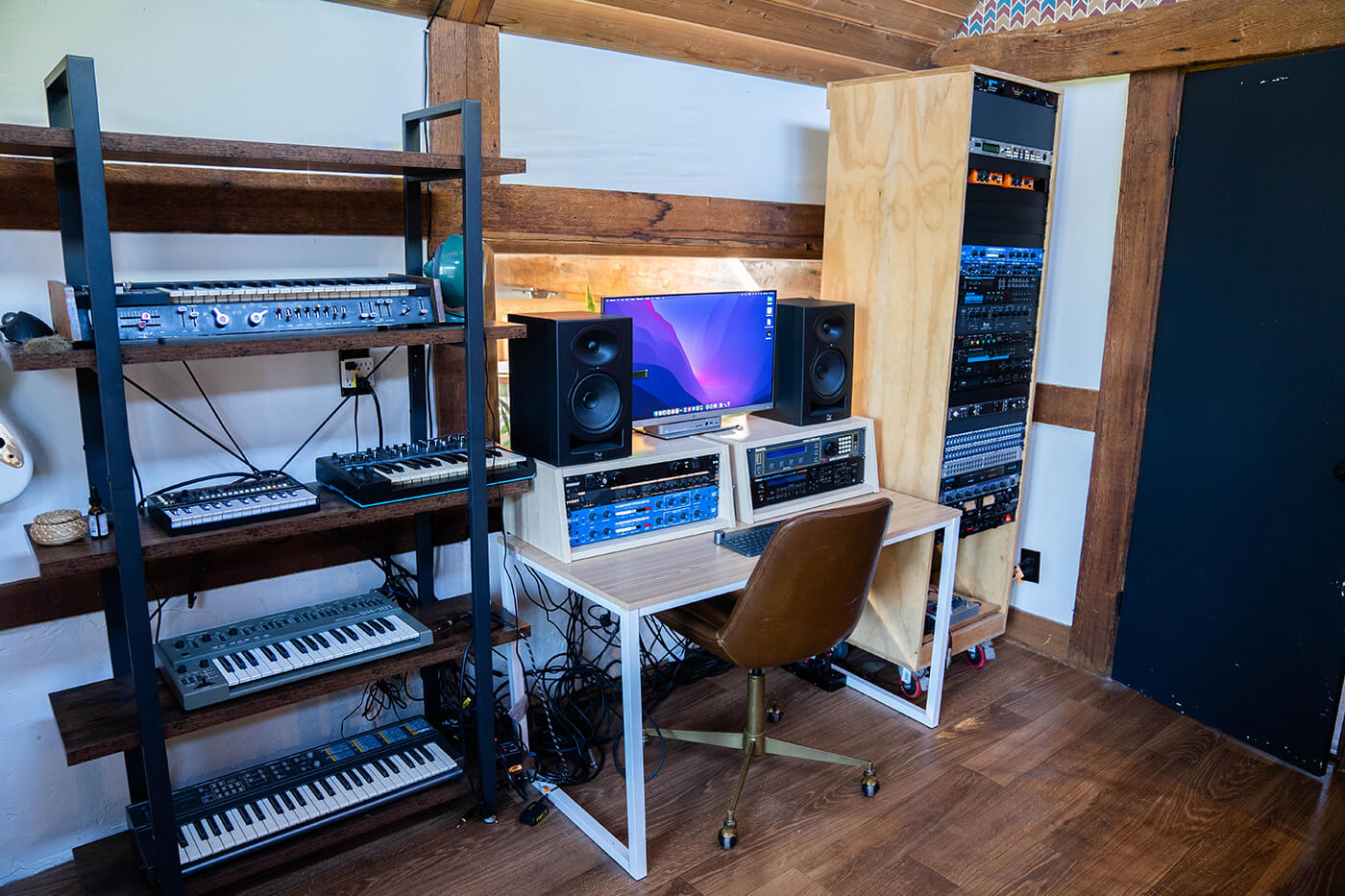
‘Blame It All On Love’
Since those heady days, Poolside’s journey has taken in numerous albums, remixes and festival shows at huge events like Coachella and Primavera Sound. After becoming a solo endeavour, Jeffrey has spent much of the past five years shaping Poolside into a band form. The new album sees him taking this widescreen vision into the studio too. Not only are the songs free but full of collaborations with Ben Browning of Cut Copy, Slenderbodies, Mazy, Life On Planets, Ora The Molecule among others.
“I don’t like producer life’s solitary nature,” he says. “I love writing with friends and bouncing ideas back and forth. When you work with people you relate to, then the songs feel like the sum is much larger than its parts.”
‘Where is the Thunder?’ made with Nora the Molecule, is a stylistic favourite of his from the album, built from a minimal three guitar parts, bass, a drum loop and vocal.
“It’s so different to Poolside and I’m proud of myself that we’ve decided to put that out,” he says. “It might not be the most interesting for gearheads. But there’s something challenging to come up with magic that is so simple.”
Ventura Highway Blues, featuring Life on Planets, is another highlight for Jeffrey due to the off-kilter swagger of the track’s drums.
“I try to create this vibe that is just lurking in the background, not obvious or in your face,” he says. “The production is just there to make the song “feel” special, and isn’t too showy. I’m trying to create a unique mood, not show off any production chops.”
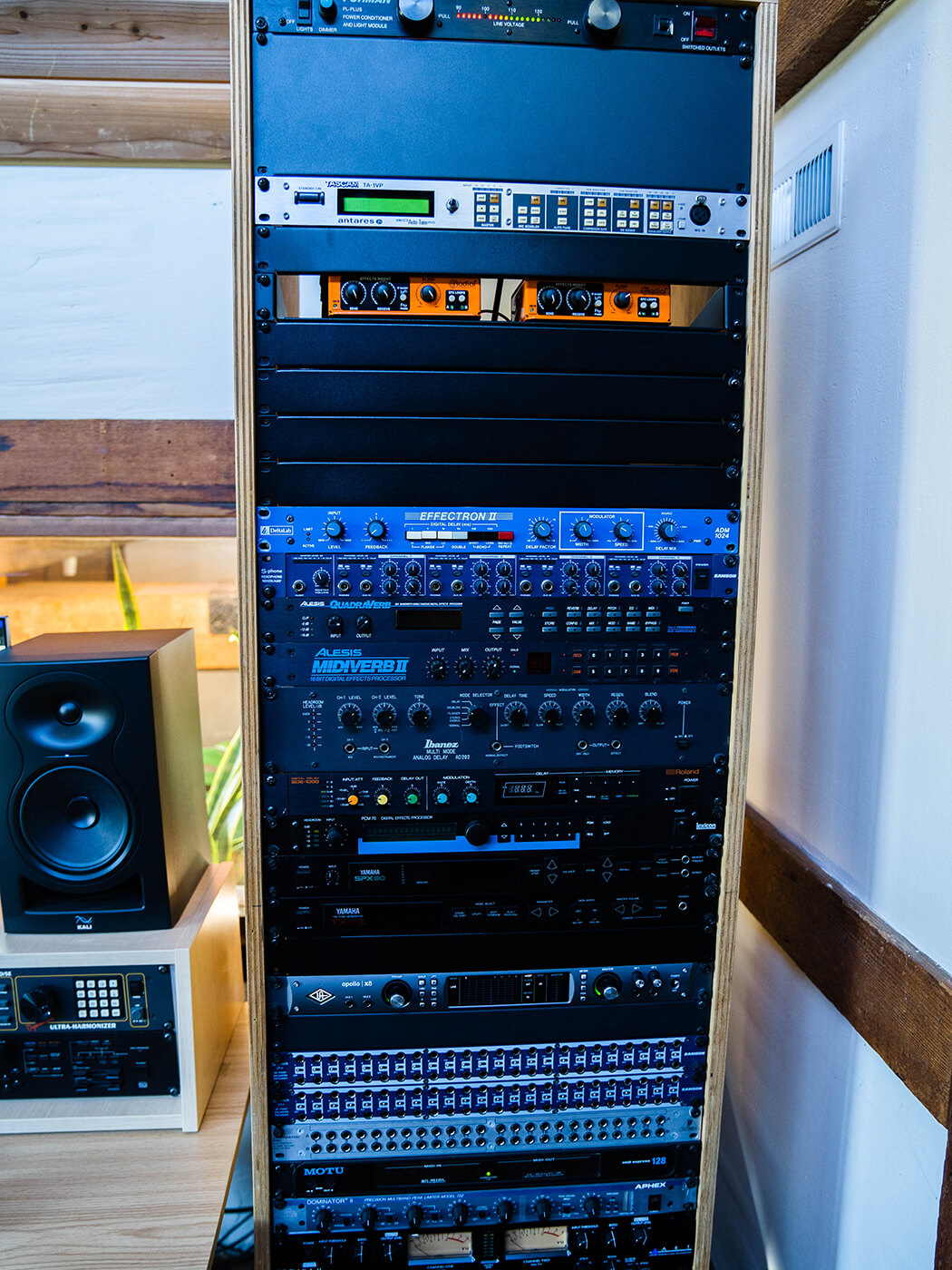
Album creating
Although Jeffrey has myriad pieces of kit and even more vinyl records in his studio, he’s not a gear fetishist. Instead he seeks out older pieces of kit or software that are prone to misbehaving to give his music character.
“Four tracks were written with Ben Brown from Cut Copy using Roland HS60, which is like a Juno 106 with little speakers in it,” Jeffrey says. “It just about works but you can hear there are inconsistencies, a fucked up noise floor, all this stuff, it’s on all four songs.”
With today’s virtual synths or plug-ins very capable of recreating an analogue sound, he opted to go further back into early digital, where software and their sounds were less polished and professional.
“A lot of my gear is early digital stuff, mostly nineties, when it was still inconsistent – that’s a real sweet spot for me right now,” he says. “Alesis Midiverb II and Quadraverb have these wild reverse reverbs with tons of artefacts and “issues” that just sound really exciting and are hard to recreate with software. The Effectron ADM 1024 is also all over the record for delay and flange, it’s digital but has a nice gritty quality that doesn’t sound sterile or super ‘analog warm’ – again, it has this unique character to it.”
“With the first three records, we’ve explored different sides of the sound and it’s never been redundant. But with this album, I tried to give myself permission to write and record without knowing how I’d use the music – and it felt great to put together.”
The saying of how artists don’t ever finish a piece of music, they abandon it, is one Jeffrey identifies strongly on this record due to the possibilities surrounding software and hardware. Despite not being an avid collector, a tour of his studio via his laptop shows there is plenty of equipment stashed in there.
“I have a Yamaha Rev 7 reverb and I think it’s one of the worst sounding reverbs ever,” he laughs. “It instantly sounds amateur or just plain bad when you put it on drums or vocals. That said, I really like putting this on something small, like a hand clap or clave or something, and hand automating it, which all sounds really wrong. Then I use other reverbs on the rest of the drums, breaking the idea of the drums even being in the same room.”
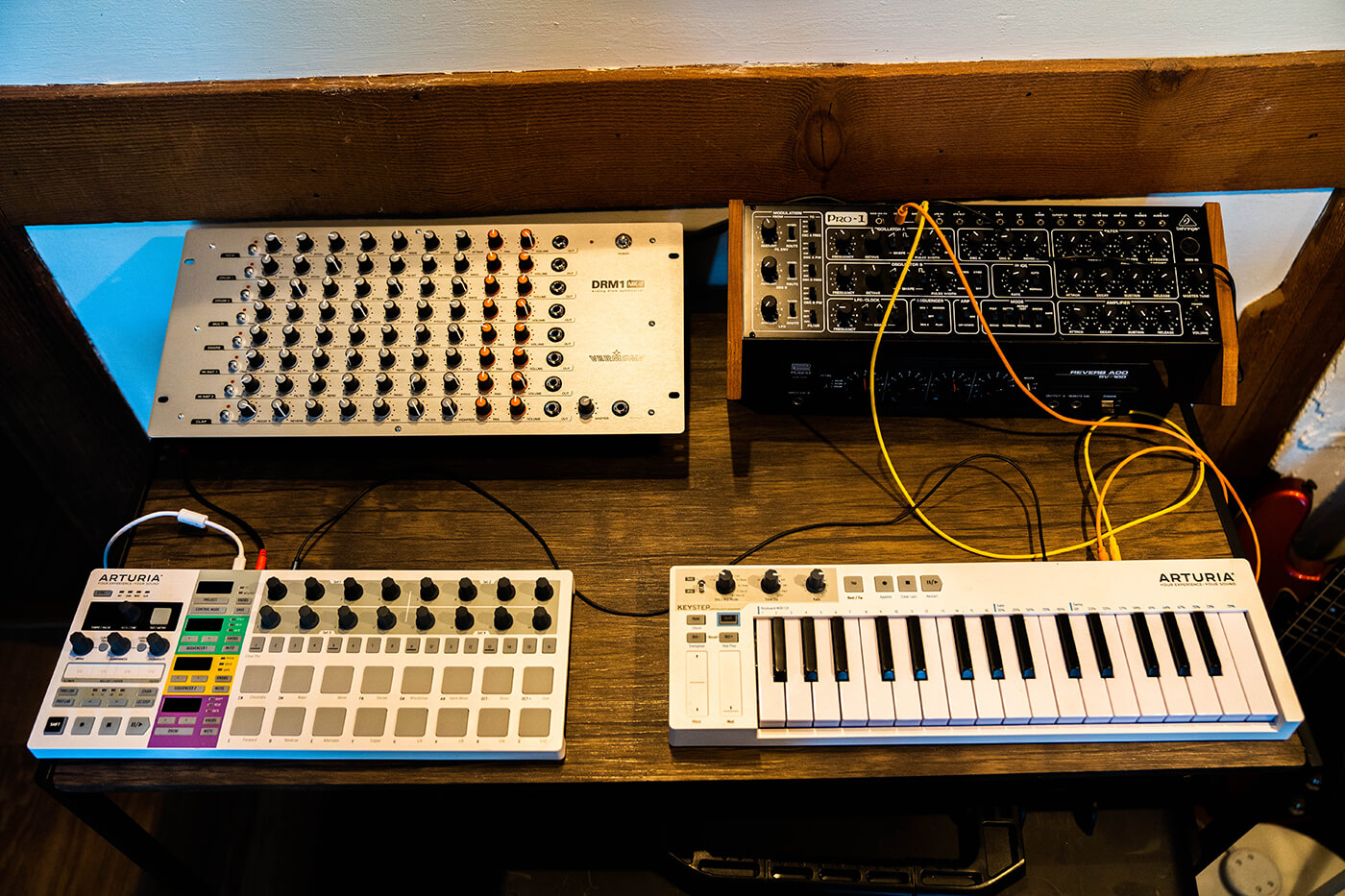
“Ultimately I like to do all of these subtle things that you’re not supposed to do to capture a unique vibe that is fresh and has unique moments and character.”
With the album out, and a huge tour planned for 2024, Jeffrey is proud of the efforts poured into the songs on the record. By mixing what he’s learned as a producer with his early punk years, he’s found himself moving Poolside forward in a way that reflects who he is and where he’s been.
“If I had made another record that felt aquatic or chillwave, it would have been fine – but that’s what I would be known as forever,” he explains. “With the first three records, we’ve explored different sides of the sound and it’s never been redundant. On this album, I tried to give myself permission to write and record without knowing how I’d use the music – and it felt great to put together.”
Visit poolsidemusic.com for more information.